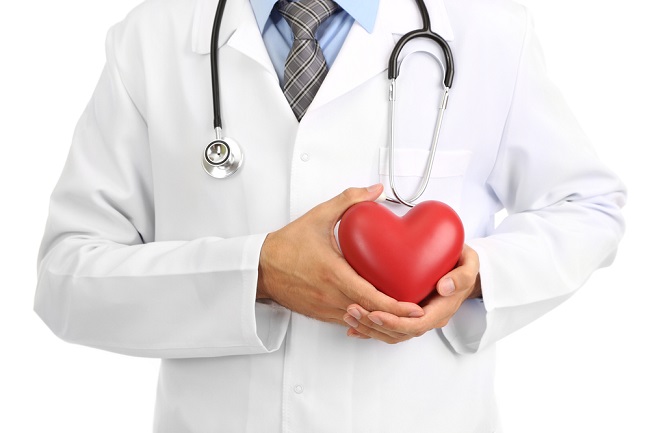Know the Role of Specialist Heart and Blood Vessel Doctors
Heart and blood vessel specialists are doctors who have specific expertise in treating cardiovascular and cardiovascular diseases. His educational background is a general practitioner who has completed a heart and blood vessel specialist education.
Heart and blood vessel medicine is also an area studied by internal medicine specialists. Cardiologists and internal medicine specialists often collaborate or cooperate with each other in dealing with patients with heart and blood vessel problems.

Treated Disease Cardiologist and Cardiologist
Cardiologists have a thorough knowledge of the prevention, diagnosis, and treatment of various cardiovascular diseases, from high blood pressure to heart attacks. Diseases treated by cardiologists and blood vessels include:
- Myocardial infarction or angina.
- Coronary heart disease.
- Vascular disease.
- Heart valve disease.
- Congenital heart disease.
- Aortic disease.
- Heart muscle disease (cardiomyopathy).
- Heart tumor.
- Heart rhythm disturbance (arrhythmia).
- Pericarditis.
- Heart attack.
- Heart failure. li>
- Cardiac arrest.
Actions performed by Cardiologist and Vascular
In making a diagnosis, cardiologist and blood vessels will trace the patient's medical history and symptoms. After that, the doctor will perform a physical examination of the heart to evaluate whether there is a heart disorder. After that, to ensure a diagnosis, doctors will often recommend additional tests or further tests, such as:
- ECG (electrocardiography).
- X-ray, CT scan, MRI, angiography .
- Echocardiogram (heart ultrasound).
- Stress test/ a treadmill exercise test.
- Blood test.
Once the diagnosis is confirmed, the cardiologist will determine the treatment steps to treat the patient's illness. Treatment with medications and certain medical procedures may also be needed, in accordance with the results of the diagnosis.
The purpose of treatment is to stabilize the condition, control the symptoms in the long run, and cure the disease if possible. In addition to medical treatment, patients will also be advised to reduce stress, go on a healthy diet, and exercise diligently to improve conditions.
Some special medical measures in the treatment of heart and blood vessel disease, which is the competence of cardiologists in include:
- Cardiac catheterization.
- Angioplasty.
- Angiography.
- Pacemaker implant ( pacemaker ) or ICD implants ( Implantable Cardioverter Defibrillators ) that are planted under the skin of the chest or abdomen heart blood vessels, but also includes general vascular disease, such as varicose veins, vascular thrombosis, and peripheral arterial disease.
When to Check with a Doctor Specialist Heart and Blood Vessels?
Heart disease is a deadly disease. Therefore, you are advised to immediately see a cardiologist if you experience some of the following symptoms:
- Chest pain that extends to the back, chin, throat, or arms.
- Shortness of breath.
- Irregular heartbeat.
- Nausea.
- Dizziness and weakness.
- Sweating.
- Get tired quickly or appear complaints of tightness or chest pain after physical activity, for example after climbing stairs or exercising.
If you feel the symptoms above, immediately visit a cardiologist. If not treated immediately, a heart attack has a high risk of death. You are also advised to check yourself if you have risk factors, such as obesity and diabetes. Immediate treatment can reduce more severe damage to the heart.
Which Must Be Prepared Before Meeting a Heart and Vascular Specialist
Many people are unaware of a heart attack , because heart attacks are often considered a common complaint, such as heartburn or colds. Many also underestimate the pain in the chest, even though the pain has lasted for 30 minutes and feels very painful.
Getting a diagnosis of heart disease can be surprising for some people. However, that does not mean you have to be afraid to consult a cardiologist. Mental readiness and family support are very important in the success of treatment. In addition to these two things, you should also consider the costs required for examinations, medical tests, and medical procedures for cardiologist. Costs incurred may not be cheap, so financial readiness is needed.
For that, you are advised to record complaints related to heart disease, such as when complaints arise, which areas are painful, how long pain lasts, and when when the complaint appears. Cardiologists will also ask you to tell your lifestyle, such as diet and exercise routines, as well as smoking habits. Clear and complete information can make it easier for the cardiologist to determine the right diagnosis.